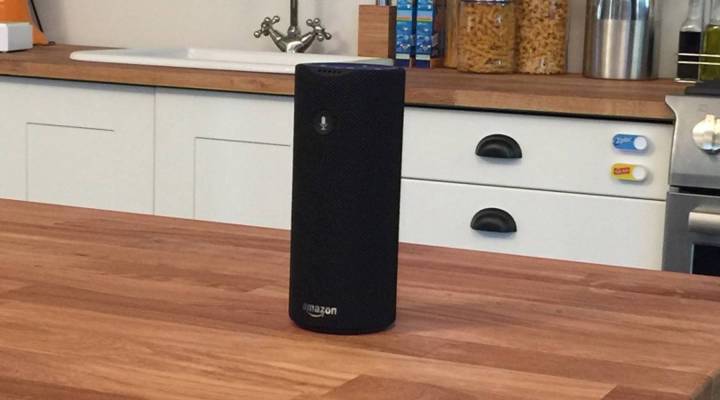
How voice-activated speakers are lending a virtual hand to parents
Share Now on:
How voice-activated speakers are lending a virtual hand to parents

Smart speakers, those voice-controlled devices reminiscent of “Star Trek’s” multitasking computer, are finding a place on kitchen counters and in living rooms. They can play music, answer questions, control lights and, in the case of Amazon’s Echo, place shopping orders. Turns out they are lending a virtual hand to parents, too.
More than half — 57 percent — of smart speaker owners with children recently surveyed by NPR and Edison Research said that entertaining kids was a reason for wanting the voice-activated devices.
Amazon introduced the first smart speaker in 2014 and has since dominated the market. More than three quarters of smart speaker owners surveyed use Alexa (Echo’s digital assistant), according to the NPR and Edison report. Google Home is Echo’s biggest competitor. Apple and Alibaba will launch their own versions this year, while several others are in the works.
Statistics suggest that smart speaker ownership is growing even within households; 42 percent of owners have more than one device, the study said, and 45 percent plan to buy another.
So how does a talking robot amuse the kids? We asked you to share your experiences and here’s what you told us.
Our kids use Alexa every day to ask questions and play music, though I’d never delegate caregiving to a machine
— Jeff Judge (@jjudge) July 6, 2017
I was babysitting an energetic kid, and was surprised when he sat down said he wanted to read a book. Then, he asked Alexa to play his story
— Spencer Claiborne (@SpencerC) July 6, 2017
Sometimes, the questions kids ask are entertaining the adults:
My 5 y.o. nephew has long, involved and hilarious (to him) conversations with Siri. He asks unanswerable Qs and laughs at her consternation.
— Erin A. Hennessy (@ErinAHennessy) July 6, 2017
Andy Kruse, our colleague over at APM Reports, knows all about those conversations:
The Alexa app is a decent snitch for what kids asked while I was out of the room. pic.twitter.com/0w9YOjGUM7
— Andy Kruse (@aakruse) July 6, 2017
Some thought that digital assistants were unsuitable babysitters:
My kids older than that now, but NO. I hid devices from them when little. Fries their brain and affects behavior. Makes kids dumb ;(
— Eve Lindemuth Bodeux (@ebodeux) July 6, 2017
Baby sit no… But if I don’t know the answer to a question my response is usually go ask Google
— JBirdVegas (@JBird_Vegas) July 6, 2017
What about entertaining the other family members who might get bored and destructive if left to their own devices? (We’re talking quadrupeds here.)
I put music or audiobooks on for my dog with Alexa when I am gone. Kids on the other hand should have to suffer in silence.
— Ryan ? (@ryeanginger) July 6, 2017
If predictions bear out, we’re going to see a lot more smart speakers. The market is expected to soar over the next several years, with market size jumping from about $400 million in 2016 to more than $13 billion in 2024, market research firm Global Market Insights reported in June. The company predicts the market will grow at a compound annual growth rate of more than 50 percent from this year to 2024. Gartner, an information technology research company, estimates that 75 percent of U.S. households will have a smart speaker by 2020.
| Cayla, the connected doll, is a spy and must be destroyed |
| Artificial intelligence could soon eclipse touch screens |
There’s a lot happening in the world. Through it all, Marketplace is here for you.
You rely on Marketplace to break down the world’s events and tell you how it affects you in a fact-based, approachable way. We rely on your financial support to keep making that possible.
Your donation today powers the independent journalism that you rely on. For just $5/month, you can help sustain Marketplace so we can keep reporting on the things that matter to you.












